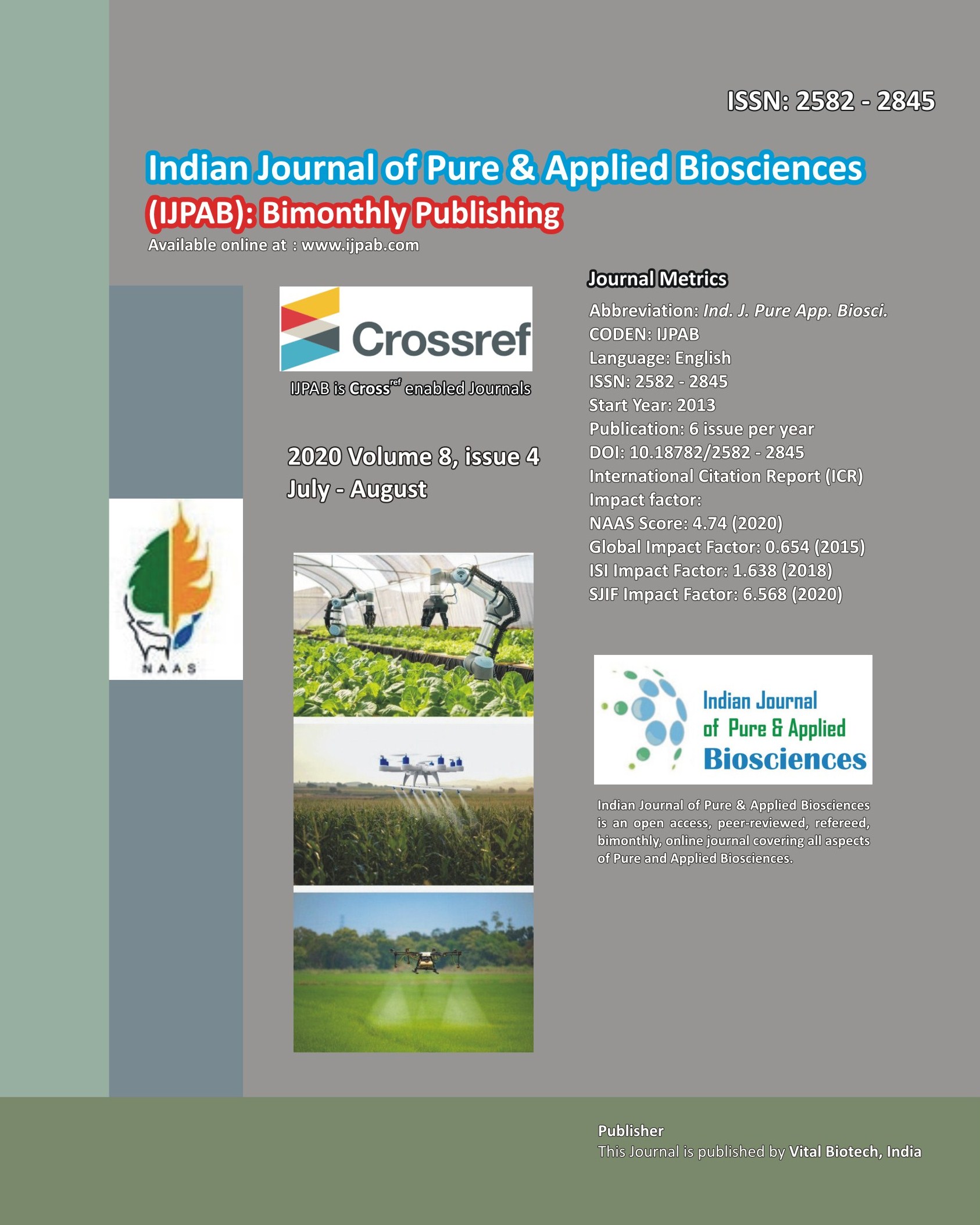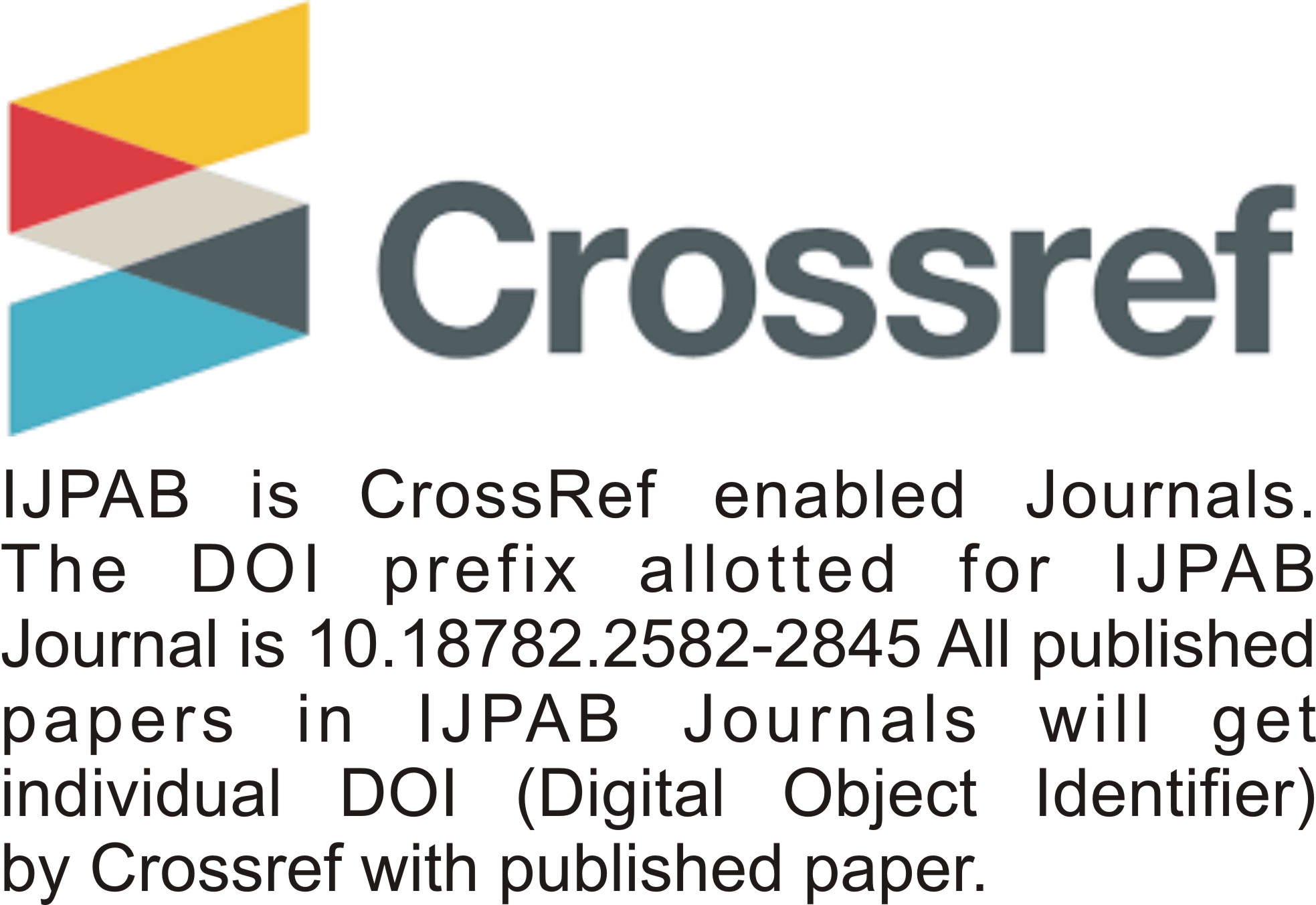
-
No. 772, Basant Vihar, Kota
Rajasthan-324009 India
-
Call Us On
+91 9784677044
-
Mail Us @
editor@ijpab.com
Indian Journal of Pure & Applied Biosciences (IJPAB)
Year : 2020, Volume : 8, Issue : 4
First page : (467) Last page : (476)
Article doi: : http://dx.doi.org/10.18782/2582-2845.8202
An Overview of Arsenic Dynamics in Lowland Rice Ecosystem
Perves Ahmed1* ![]() , Mrinal Choudhury2 and Ranjita Brahma3
, Mrinal Choudhury2 and Ranjita Brahma3
1,3Assistant Professor, Department of Agronomy,
2Assistant Professor, Department of Soil Science,
SCS Collage of Agriculture, AAU, Dhubri, Assam, India
*Corresponding Author E-mail: pervesahmed@gmail.com
Received: 2.06.2020 | Revised: 7.07.2020 | Accepted: 11.07.2020
ABSTRACT
Arsenic naturally occurs in many environmental media, such as rocks, soil, sediments, and surface/groundwater and it can further be released into the aquatic and terrestrial ecosystem via natural and anthropogenic activities. Amongst the main contributing sources of As contamination of soil and water are geologic origin, pyritic mining, agriculture and coal burning. Soils contain both organic and inorganic arsenic species. Inorganic As species are more toxic to living organisms than organic forms. The majority of As in aerated soils exists as H2AsO4− (acid soils) or HAsO42− (neutral and basic). However, H3AsO3 is the predominant species in anaerobic soils, where arsenic availability is higher and As (III) is more weakly retained in the soil matrix than As(V). The availability of As in soils is usually driven by multiple factors and processes such as the presence of Fe-oxides and/or phosphorus, (co)precipitation in salts, pH, organic matter, clay content, rainfall amount, etc. The available and most labile As fraction can potentially be taken up by plant roots, although the concentration of this fraction is usually low. The status of current scientific knowledge allows us to manage as contamination in the soil-plant system and to mitigate arsenic’s effects. Hence it is imperative to understand the mechanisms of As uptake and translocation by rice and the present paper focuses on the journey of As from soil to human through the rice grains.
Keywords: Arsenic, Dynamics, Lowland, Management, Rice ecosystem
Full Text : PDF; Journal doi : http://dx.doi.org/10.18782
Cite this article: Ahmed, P., Choudhury, M., & Brahma, R. (2020). An Overview of Arsenic Dynamics in Lowland Rice Ecosystem, Ind. J. Pure App. Biosci. 8(4), 467-476. doi: http://dx.doi.org/10.18782/2582-2845.8202

